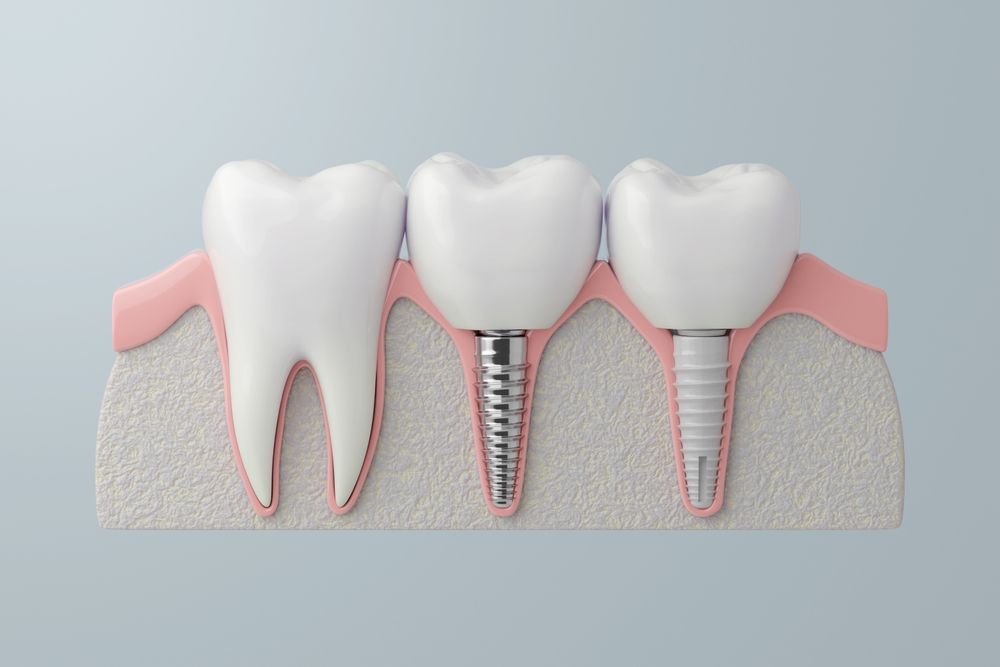Dental implants have revolutionized dentistry, providing a durable solution for patients with missing or damaged teeth. Traditionally, titanium was the standard material for dental implants due to its strength and biocompatibility.
However, advancements in dental materials introduced zirconia implants, a metal-free alternative that’s gained popularity among patients and professionals alike. Choosing between these materials can be complex, as both offer unique benefits.
If you’re deciding between the two, let’s explore zirconia and titanium implants to help you decide on the best option for your needs.
The Foundation of Titanium Dental Implants
Titanium has been a foundational material in dental implants for decades, known for its remarkable strength and high success rate in bone integration. Titanium’s properties allow it to bond effectively with the jawbone in a process known as osseointegration, resulting in a stable, long-lasting foundation for replacement teeth.
However, titanium is a metal, which may pose challenges for certain patients. Some individuals are sensitive to metals, and although titanium allergies are rare, they can lead to adverse reactions. This risk, combined with titanium’s potential to be visible through the gums in patients with thinner gum tissue, has motivated the search for alternative materials.
The Rise of Zirconia Implants
Zirconia, also known as zirconium dioxide, emerged in the ‘90s as a ceramic alternative that offers high strength and durability without the use of metal. As a non-metal, zirconia does not trigger reactions in patients sensitive to metals, making it an ideal choice for individuals with metal allergies or sensitivities.
Zirconia’s color also resembles natural tooth roots, offering an aesthetic advantage over titanium, which can occasionally appear grayish under the gums.
Zirconia also has distinct advantages in terms of corrosion resistance. Dental implants face constant exposure to a harsh oral environment, with varying temperatures, acidic foods, and continuous moisture. While rare, titanium implants may corrode over time, zirconia is highly resistant to such wear, making it an excellent long-term solution.
Comparing the Benefits Between Zirconia and Titanium
Both titanium and zirconia implants offer unique advantages in strength, appearance, and compatibility with the body.
Strength and Durability
Titanium is a time-tested material for dental implants. It provides robust strength that supports daily chewing and speaking. Its composition suits it, particularly for implants needing heavy loads, such as those in the back of the mouth.
Although relatively newer, zirconia also demonstrates impressive durability and resilience. Modern zirconia implants are engineered to withstand the same forces as titanium, making them a dependable option for patients looking for a strong, long-lasting solution.
Aesthetic Appeal
A notable difference between the two materials is their appearance. Titanium implants can sometimes be visible through thin or receding gums, displaying a slightly dark or grayish tint. On the other hand, Zirconia’s naturally white color blends more seamlessly with natural teeth, offering an aesthetic advantage, particularly for front teeth or patients with thin gum tissue.
Biocompatibility and Patient Comfort
When it comes to biocompatibility, both titanium and zirconia have been shown to integrate well with the jawbone. However, zirconia has a slight edge regarding patient comfort for those sensitive to metals.
Zirconia’s thermal properties also prevent it from conducting hot or cold temperatures, creating a more comfortable experience for patients who are sensitive to temperature changes.
Who Should Consider Titanium Implants?
Whether you need a single dental implant or a full arch, titanium implants remain an excellent choice for most patients, particularly those with a robust jawbone structure and no sensitivities to metal. Their long-standing history in dental applications has cemented them as a reliable and versatile option, especially for those who prioritize durability and aren’t as concerned about the potential aesthetic implications.
Titanium implants are also available in two-piece designs, allowing for greater flexibility in certain cases where the implant may need to be angled or modified for a custom fit.
Who Should Consider Zirconia Implants?
Zirconia implants provide an ideal alternative for patients who prefer a metal-free solution or have concerns about metal allergies. Individuals with thinner gums or a focus on the aesthetics of their smile may also benefit from zirconia’s natural-looking appearance.
Zirconia implants are typically designed as one-piece units, which simplifies their structure and may reduce bacterial build-up compared to multi-part systems. This characteristic can be particularly beneficial for patients who have experienced gum recession or are prone to periodontal concerns.
Experience The Future of Dental Implant Materials with FastNewSmile Dental Implant Center
Both titanium and zirconia implants have advanced significantly, allowing patients to choose between reliable options tailored to their specific needs.
While titanium continues to be the most commonly used material, zirconia’s metal-free composition and aesthetic appeal make it an increasingly popular choice for health-conscious and cosmetically-minded patients.
At FastNewSmile Dental Implant Center, we’re dedicated to providing our patients with the latest advancements in dental implant technology, ensuring every individual can achieve a lasting, beautiful smile with the material that best suits their lifestyle.
Our team of prosthodontists is prepared to guide you through the benefits of both titanium and zirconia, ensuring you feel confident and well-informed in your decision.
Contact us to learn more about our implant options, schedule a free consultation, and discover the perfect solution for your smile.

